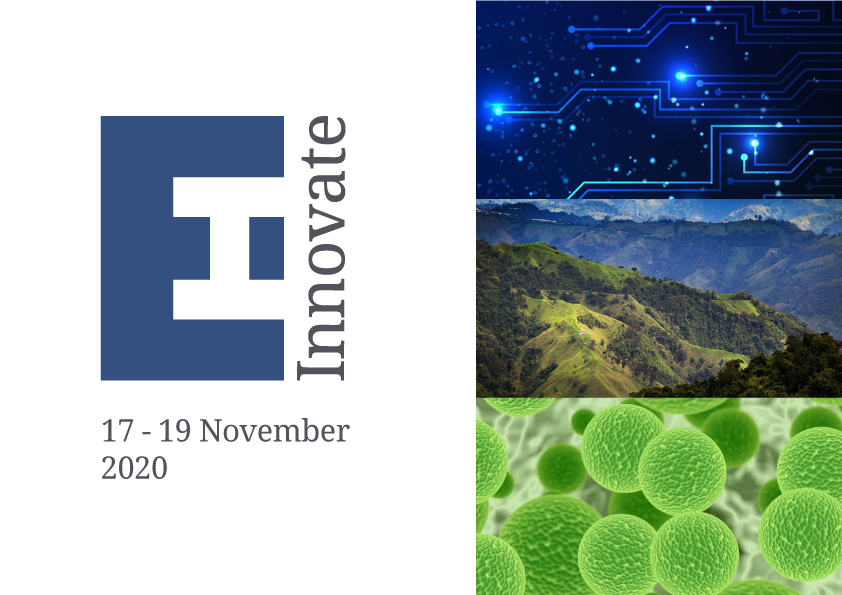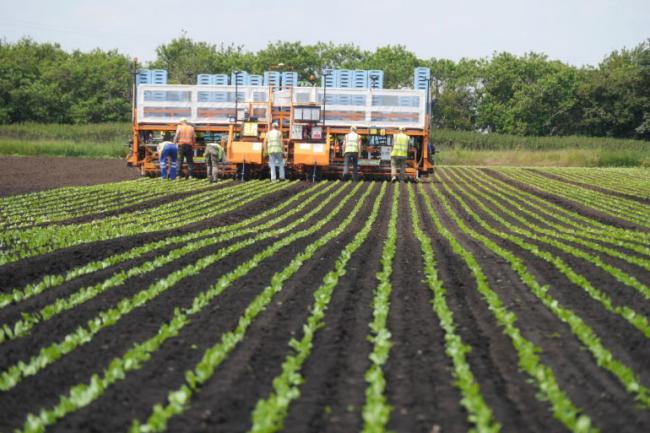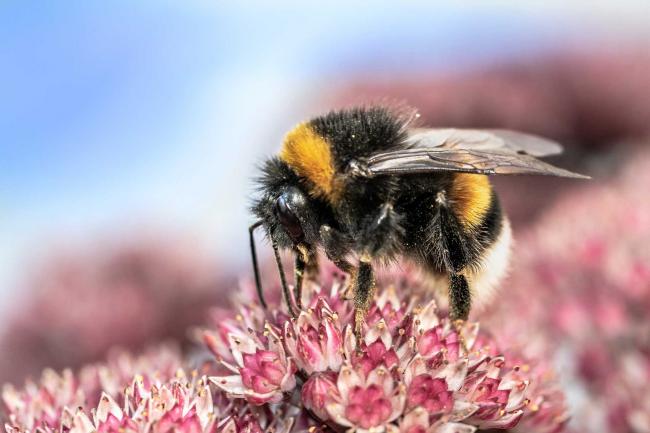Day One - 17 November 2020
Disease identification and monitoring – how genomics and bioinformatics are used for disease identification and monitoring, from COVID-19, to AMR to agricultural pathogens
Outbreaks of infectious diseases have devastating impact including loss to life and economic downturn. EI is at the forefront of developing pipelines, automation and data management that are key for the development of rapid and accurate detection and diagnostics of infectious diseases of people, animals and plants. This session will enable participants to learn about EI’s capabilities in disease detection and diagnostics, including human gut diseases such as sepsis or necrotising enterocolitis (NEC), airborne agricultural pathogens, foodborne bacterial infections including Salmonella and covid-19. It will provide examples of how working with EI can advance the development of solutions for disease diagnostics and monitoring.
This session will be chaired by Professor Christiane Hertz-Fowler, Head of Infection and Immunobiology at the Wellcome Trust.
There will be two talks by:
- Dr Richard Leggett, Earlham Institute, talking about EI’s capabilities in disease detection and diagnostics, including human gut diseases such as sepsis or necrotising enterocolitis (NEC), airborne agricultural pathogens.
- Mark Hitchcock, UEA Health and Social Care Partners, talking about the Norwich Testing Initiative and collaborative efforts in covid-19 testing across the Norwich Research Park.
Facilitated discussion session will have 4 breakout rooms for participants to choose:
- In-field real-time identification of agricultural pathogens from air led by Dr. Richard Leggett.
- Micro-organisms functional diversity as an indicator of soil health led by Dr. Jose de Vega
- Detection of human and animal pathogens at scale led by Dr. Karim Gharbi.
- Laboratory and bioinformatic methodologies to analyse bacterial populations to track evolution and development of AMR, led by Dr. Matt Bawn.
1:1 networking in the afternoon
The event networking experience will be facilitated through the software platform Meeting Mojo. This session will enable you to meet other attendees to ask questions or continue conversations you started during the breakout discussions. If you opted to participate in 1:1 networking when registering for EI Innovate, we will create your account on Meeting Mojo. You will receive the email inviting you to edit you profile where you can add your photo, your expertise and your availability for 15 min slots.
Day Two - 18 November 2020
Finding a needle in a haystack – Identifying specific targets in health and disease with long read RNA and single cell sequencing.
Genomic tools allow insights into functional consequences of genetic variation, however identifying targets and pathways in health and disease can be challenging due to discrepancy in a mixed-cell population. EI is at the forefront of developing the laboratory workflows, bioinformatic pipelines and data management that are key to narrowing down specific therapeutic targets. In this session, we focus on long-read RNA and single-cell sequencing to pinpoint the cells and genes critical for animals and humans in health and disease. Participants will gain insight into EI’s single cell and long read RNA advancement, with applications range from cancer and cardiac disorder, to antimicrobial resistance and bacterial evolution.
This session will be chaired by Dr Andrew Bassett, Head of Research at the Sanger Institute.
There will be two talks by:
- Dr Iain Macaulay, Earlham Institute, introducing EI’s technological platforms for single cell sequencing and providing examples of applications.
- Prof Elizabeth Tunbridge, University of Oxford, talking about the links between gene expression regulation and brain dysfunction in psychiatric disorder.
Facilitated discussion session will have 2 breakout rooms for participants to choose:
- Applications of single cell multi-omics technology in human, animal and plant research, led by Dr Iain Macaulay.
- Gaining critical genetic insights from long read sequencing analysis, including information for traits of relevance and understanding functional diversity to detect specific disease targets, led by Dr Wilfried Haerty.
1:1 networking in the afternoon
The event networking experience will be facilitated through the software platform Meeting Mojo. This session will enable you to meet other attendees to ask questions or continue conversations you started during the breakout discussions. If you opted to participate in 1:1 networking when registering for EI Innovate, we will create your account on Meeting Mojo. You will receive the email inviting you to edit you profile where you can add your photo, your expertise and your availability for 15 min slots.
Day Three - 19 November 2020
Accelerating plant breeding with next generation genetics, genomics and epigenetics.
Plant genomics has revolutionised the agricultural industry by providing a greater understanding of desirable traits, resulting in a more targeted approach to plant breeding practices and facilitating crop improvement. EI is at the forefront of developing pipelines, automation and data management, these approaches are important in enhancing productivity of key agricultural crops and drive sustainable agricultural practices. This session will explore the importance of genetic diversity in crop improvement. It will also highlight the latest developments in genomics and bioinformatics that can support plant breeding.
This session will be chaired by John Bloomer, JMB Consulting, an independent consultant and adviser within the international agricultural technology industry, and UKRI-BBSRC Council member.
There will be two talks by:
- Prof. Anthony Hall, Earlham Institute, talking about the mechanisms for genetic diversity, assembly genomes & variation.
- Dr Mark Davey, BASF, talking about R&D strategies for implementing the latest developments in genetics and genomics to drive an efficient discovery pipelines for genes underlying key traits.
Facilitated discussion session will have 3 breakout rooms for participants to choose:
- Hybrid wheat: the need for greater diversity in germplasm & hybrid parental development, hybrid wheat breeding strategies and novel sterility systems, led by John Bloomer.
- Accelerating plant breeding with Machine Learning techniques, applications for profiling gene underlying key agricultural traits or key physiological processes, and the role of epigenetics in plant adapt, led by Prof Anthony Hall.
- The importance of genetic diversity in agricultural varieties for adapting to environmental pressures, and translation of germplasm development research into breeding programs, led by Dr Jose De Vega.
1:1 networking in the afternoon
The event networking experience will be facilitated through the software platform Meeting Mojo. This session will enable you to meet other attendees to ask questions or continue conversations you started during the breakout discussions. If you opted to participate in 1:1 networking when registering for EI Innovate, we will create your account on Meeting Mojo. You will receive the email inviting you to edit you profile where you can add your photo, your expertise and your availability for 15 min slots.
















